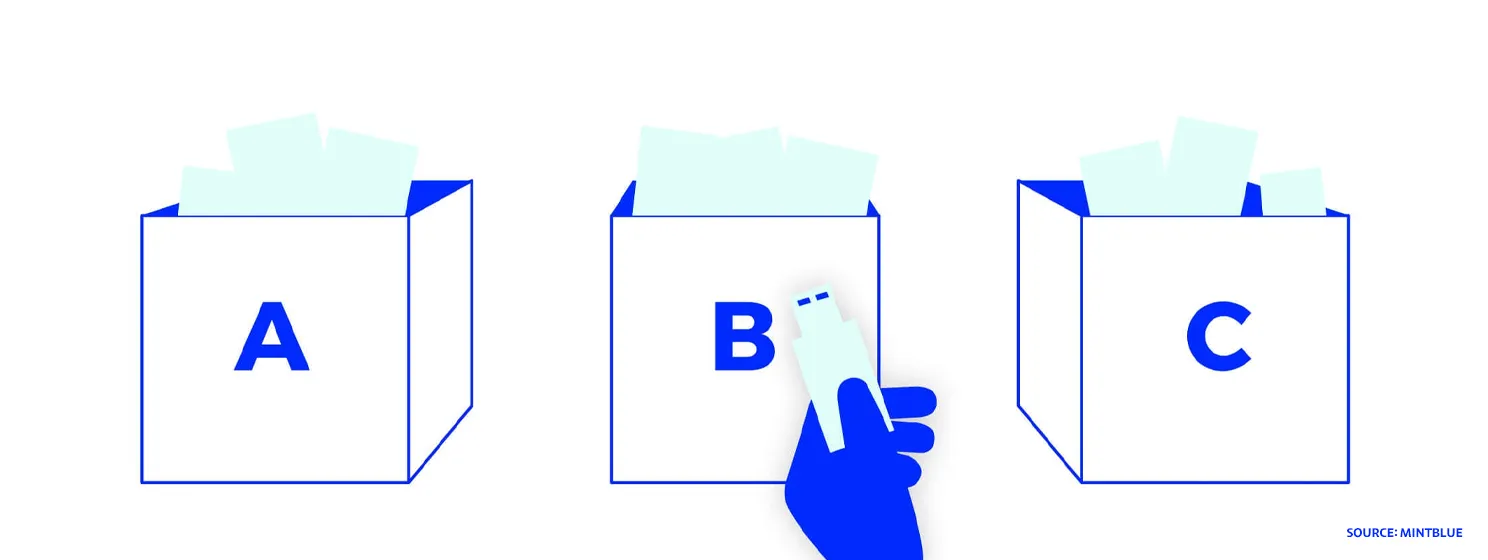|
Getting your Trinity Audio player ready...
|
Let’s face it: “Data sovereignty” is not a topic that brings crowds running to your door. Scratch beneath the surface, though, and you’ll soon realize it should. To understand how important it is, it’s necessary to think for a few seconds about how much power there is in storing masses of data. Hint: it’s a lot.
“Data equals profit, which in turn equals power,” writes mintBlue’s Rachel Byfleet in a recent blog post on data sovereignty, the potential impacts of not having it, and how blockchain records can solve the problem. “Actors across the globe seek to exploit the massive amounts of data being collected daily, and we often don’t know if they are good or bad actors until it’s too late.”
Related topics include “data provenance” and “data integrity,” which are even less attractive from a marketer’s perspective. (There probably needs to be a crowdsourced competition or at least a brainstorming session to rebrand these list items.) “Sovereignty” will at least trigger interest from some circles—individuals looking for more power over their personal lives and possessions. However, “sovereignty” may also appeal at the state/government level and even at the enterprise level. After all, whichever entity we’d prefer as our ultimate authority, we’d like to know it has full control and decision-making independence over the information it manages.
Our world today is built on data, and the property we own is becoming increasingly intangible. Do we really even “own” it? Moreover, the “global village” once promised by the internet is becoming fenced-off and localized due to geopolitical shifts that are turning adversarial in a way the world hasn’t seen for decades.
As mintBlue puts it, “There are multiple layers to understanding data sovereignty. It impacts governments, businesses, and citizens, and spans across societal values and ethics.”
National security and individual ownership issues
Byfleet gives the example of Western concerns over TikTok’s management of its users’ data and potential threats to countries’ national security—namely, that this data may be subject to collection under China’s National Intelligence Law. The popular service is facing calls to store its data locally or face an outright ban.
For the record, there are equal, but less-mentioned, concerns over social media data in non-Western-aligned countries, leading to popular services like YouTube, Facebook (NASDAQ: META), and (more recently) Discord, being blocked in Russia and/or China. Twitter/X has been banned, or is currently blocked, in nine countries, including: Brazil, China, Iran, Myanmar, North Korea, Pakistan, Russia, Turkmenistan, and Venezuela. Australia’s national government regularly feuds with American social media companies over what they’re allowed to publish, and France is currently holding Telegram’s founder Pavel Durov in custody for similar reasons.
“Currently, much of Europe is dependent on companies overseas to facilitate digital interactions,” Byfleet adds. And again, the same is true worldwide, in any country that isn’t a major technology power. The United States alone may store over 92% of the Western world’s data.
The European Union (EU) has created its General Data Protection Regulation (GDPR) and the European Data Protection Board (EDPB), which seek to regain some control over EU citizens’ data. Making these rules is always easier than enforcing them, though, and security at the technological level would be preferable.
The concerns of all parties above likely have some validity, even if it isn’t always for publicly stated reasons. Above all is the shared concern, whether it’s at the state or individual level, that some external party controls valuable and granular information about our lives and activities, and is subject to that party’s own rules and interests.
Ironically, data sovereignty may be desirable to both libertarians and national governments, albeit for different reasons. See also “freedom of speech,” “right to protest,” and censorship, which is either supported or opposed depending on the time, issues and who’s in power.
“It is therefore crucial for governments to find the balance between protecting sensitive information, while also fostering citizens’ digital freedoms,” Byfleet says.
Blockchain fixes this!
One more traditional solution is for countries to build and maintain their data centers. However, this is expensive, resource-intensive, and not even feasible in some jurisdictions. Blockchain provides a better one: data records are decentralized and may be anywhere, but the information stored there can be encrypted, with only relevant parties holding the access keys. Additionally, blockchain records are immutable. Once processed and recorded in blockchain transactions, data cannot be accessed or tampered with without leaving a trail.
But where does individual sovereignty come into this? Yes, blockchain makes it simpler for countries to enforce their local laws, but individuals using (approved) online services are still subject to those laws. Blockchain’s benefits apply to both large entities and individual users—immutability and encryption mean people can control their own personal data—but local rules governing the public services they use may give governments equal control.
“I can definitely foresee a few hiccups down the line as governments will need to balance between empowering users to maintain personal control, while also overseeing and maintaining large-scale control themselves,” Byfleet says.
Blockchain developers have created social media apps with permanent, on-chain records, making them less susceptible to takedowns. Twetch and Treechat are two examples.
mintBlue itself advocates for a totally non-custodial approach, allowing any user (large or small) to sign and encrypt their own data. Blockchain records are still open and public on-chain, but only the owner can view or use them if it’s important enough to protect. Individuals retain their privacy; corporations can maintain confidentiality.
It’s really quite a simple and elegant solution to a complex problem and a problem few outside the government or enterprise world think about (again, let’s brainstorm some better data-related terms). “Blockchain fixes this” has become a cliche, or even a joke, because until recently, the technology has struggled to operate at scale or cost. Blockchains like BSV have solved these issues, so once again it’s time to start thinking about how we can use them to build a less-dystopian Big Data world.
Watch: IPv6’s role in the global Metanet vision

 09-18-2025
09-18-2025 





